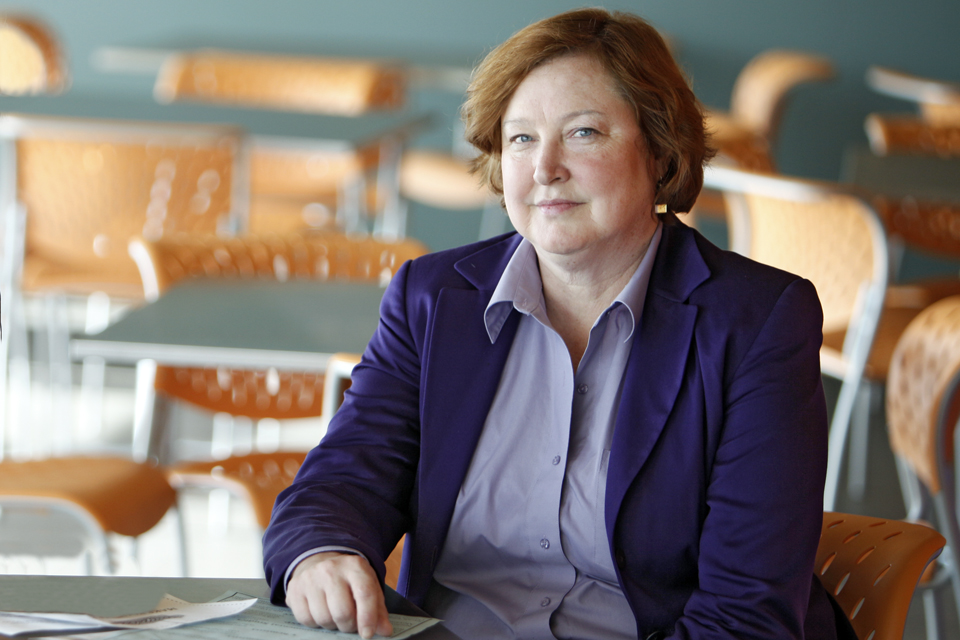Susan Lovett elected to National Academy of Sciences
 Photos/Mike Lovett
Photos/Mike LovettSusan Lovett
Susan Lovett, the Abraham S. and Gertrude Burg Professor of Microbiology, was elected to the National Academy of Sciences this week, one of the nation’s most prestigious scientific advisory societies.
She was among 120 new members elected, and one of 59 women, the most elected in a single year, according to the organization. Lovett is the 10th Brandeis faculty member to join the academy.
“The historic number of women elected this year reflects the critical contributions that they are making in many fields of science, as well as a concerted effort by our Academy to recognize those contributions and the essential value of increasing diversity in our ranks,” said National Academy of Sciences President Marcia McNutt.
“I’m surprised by this honor and grateful to be elected by such an esteemed group of scientists,” Lovett said.
Lovett studies the mechanisms by which cellular genetic material remains stable over time and is repaired following damage. Her lab studies how genes mutate and what pathways in cells act to prevent mutation — important mechanisms to avoid cancer and cellular aging.
Members are elected to the NAS in recognition of their distinguished and continuing achievements in original research. Membership is a widely accepted mark of excellence in science and is considered one of the highest honors that a scientist can receive. Of the roughly 2,900 national and international members, 190 have won Nobel prizes.
The National Academy of Sciences is a private, nonprofit institution that was established under a congressional charter signed by President Abraham Lincoln in 1863. Along with the National Academy of Engineering and the National Academy of Medicine, the NAS provides science, engineering, and health policy advice to the federal government and other organizations.
Categories: Research, Science and Technology





